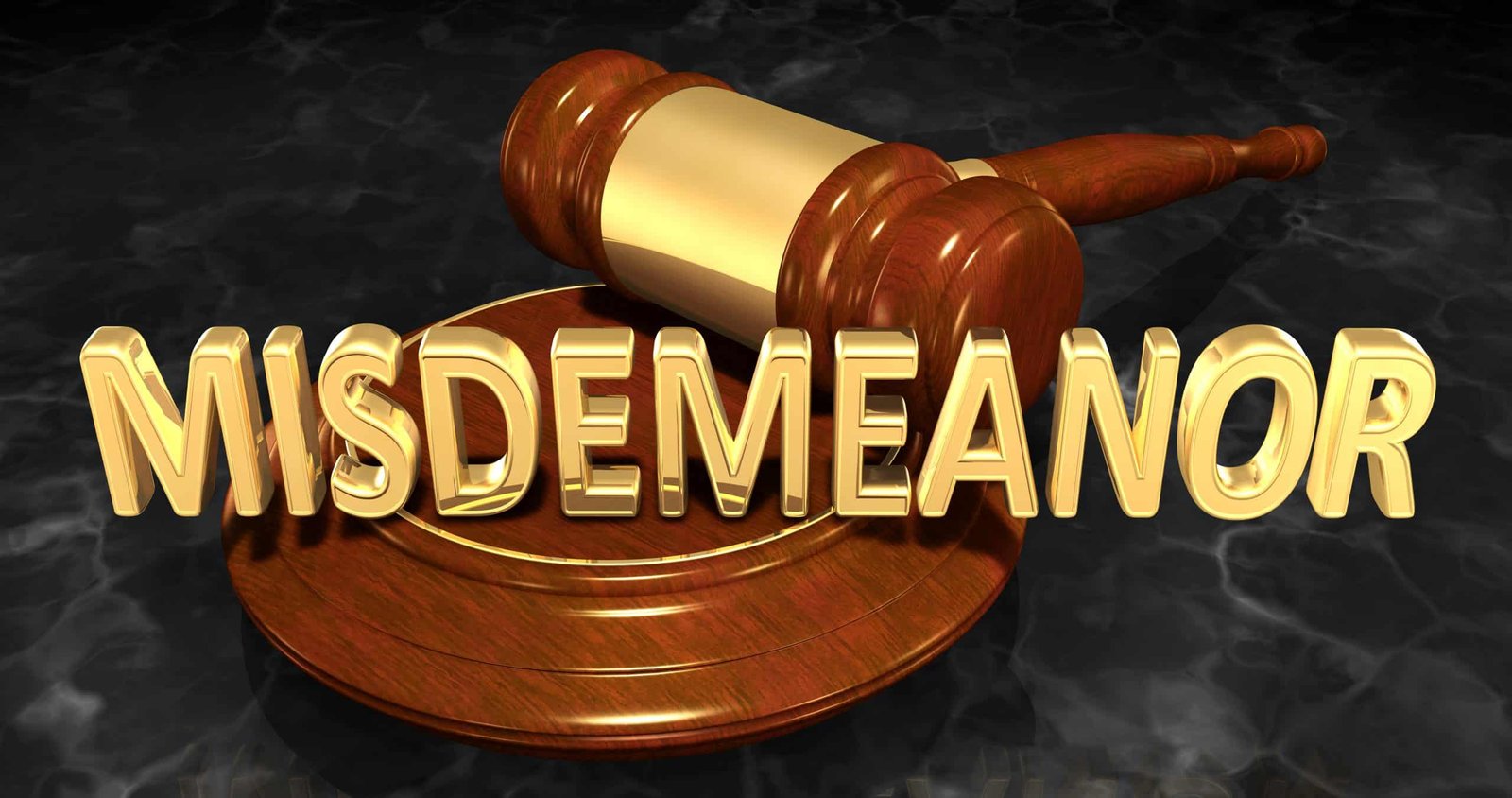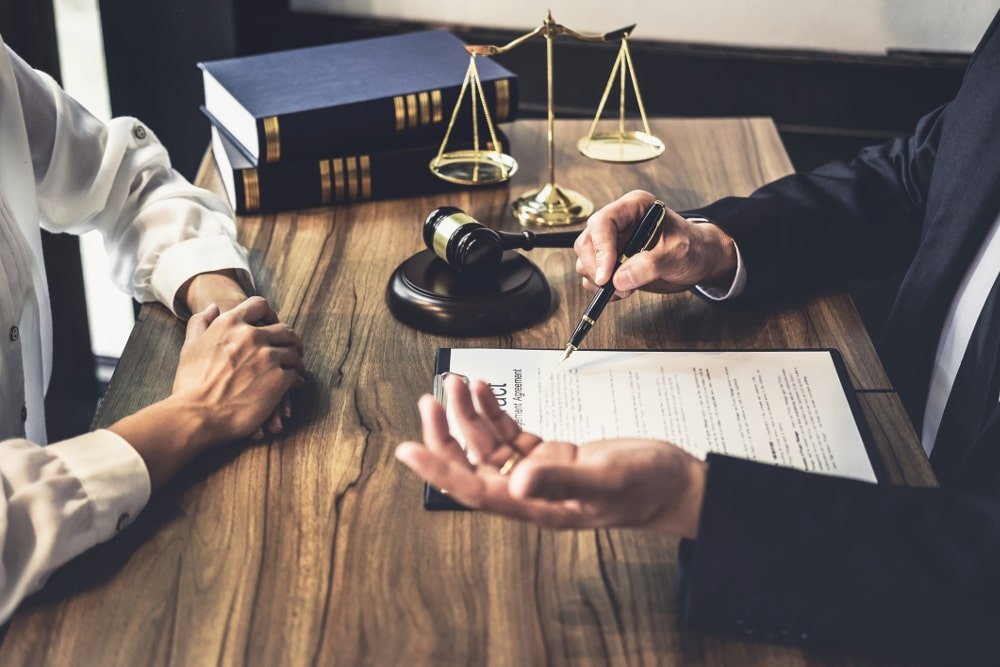Criminal charges come in many forms, and in Florida, offenses are typically categorized as either misdemeanors or felonies. While misdemeanors are considered less serious than felonies, they still carry the potential for jail time, fines, and long-term consequences that can impact employment, housing, and personal reputation.

Many people underestimate the seriousness of a misdemeanor charge, sometimes even pleading guilty without fully understanding the implications. This article is intended to clarify what a misdemeanor is, what the criminal process looks like in Florida, and what role a criminal defense lawyer plays when someone is facing these charges.
Experienced Criminal Defense Lawyer
📞 (772) 828-1143
📧 info@jordizaragoza.com
📍 130 S Indian River Dr, Suite 202, Office 218, Fort Pierce, FL 34950
What Is a Misdemeanor?
A misdemeanor in Florida is a criminal offense that is punishable by up to one year in county jail, as opposed to a felony, which can result in longer sentences in state prison. Misdemeanors may not carry the same weight as felonies, but they still reflect on a person’s criminal record and can have serious collateral consequences.
Misdemeanors in Florida are divided into two categories:
- First-Degree Misdemeanor
- Punishable by up to 1 year in county jail
- Fines of up to $1,000
- Examples: DUI (first offense), domestic battery, theft under $750, driving with a suspended license (repeat offense)
- Punishable by up to 1 year in county jail
- Second-Degree Misdemeanor
- Punishable by up to 60 days in jail
- Fines of up to $500
- Examples: Disorderly conduct, driving with a suspended license (first offense), simple trespassing
- Punishable by up to 60 days in jail
While the maximum penalties may not seem life-altering, they can still result in jail time, probation, mandatory classes, and a criminal record that may show up on background checks.
Common Types of Misdemeanors in Florida
Some of the most common misdemeanor charges that arise in Fort Pierce and across Florida include:
- Driving Under the Influence (DUI) – A first or second DUI offense is generally a misdemeanor unless there are aggravating factors.
- Possession of Marijuana (Under 20 Grams) – Still a criminal offense in Florida, even though other states have decriminalized it.
- Petit Theft – Theft of property valued at less than $750.
- Simple Battery or Assault – Unwanted physical contact or threats of violence.
- Criminal Mischief – Damaging property worth less than $1,000.
- Resisting Arrest Without Violence
- Loitering and Prowling
- Public Intoxication or Disorderly Intoxication
Each of these charges comes with unique elements that must be proven by the prosecution and can lead to differing outcomes depending on the specifics of the case.
The Criminal Process for a Misdemeanor Charge
If you are arrested or charged with a misdemeanor in Florida, the process typically follows these steps:
1. Arrest or Notice to Appear
Not all misdemeanors lead to a formal arrest. For less serious offenses, you may be issued a notice to appear in court. However, arrests are still common, especially for battery, DUI, or theft charges.
2. Arraignment
This is your first court appearance, where the judge formally reads the charges against you. You will enter a plea of guilty, not guilty, or no contest.
3. Pre-Trial Proceedings
If you plead not guilty, your attorney can begin negotiating with the prosecutor, filing motions, and preparing for trial. Many misdemeanor cases are resolved through plea bargains or pretrial diversion programs.
4. Trial
If no agreement is reached, your case may go to trial. In Florida, a misdemeanor trial may be heard by a jury unless you waive that right.
5. Sentencing
If convicted, the judge will decide your punishment. This may include jail, probation, fines, community service, mandatory classes (e.g., anger management, DUI school), or other penalties.
Long-Term Consequences of a Misdemeanor
While many people think of misdemeanors as “minor,” they can still have lasting impacts:
- Criminal Record – A conviction becomes part of your permanent record and can affect background checks.
- Employment – Certain employers may refuse to hire individuals with criminal records.
- Immigration – Non-citizens may face immigration consequences for certain misdemeanor offenses.
- Driver’s License Suspension – Some charges, like DUI or drug offenses, can lead to license suspension.
- Professional Licensing – Nurses, teachers, real estate agents, and others with professional licenses may face disciplinary action.
For these reasons, it’s important not to treat any criminal charge lightly, even if it’s “just” a misdemeanor.
Defending a Misdemeanor Charge
Just because someone is charged with a misdemeanor doesn’t mean they will be convicted. Many potential defenses depend on the facts of the case, including:
- Lack of evidence
- Unlawful search or seizure
- Violation of Miranda rights
- Mistaken identity
- Lack of criminal intent
- Self-defense (in battery or assault cases)
- Entrapment or coercion
In many cases, it’s possible to get charges reduced, dismissed, or resolved through a diversion program that keeps the charge off your record.
What a Criminal Defense Attorney Can Do
Navigating the criminal justice system without a legal advocate is risky, even for misdemeanor cases. A skilled defense attorney understands how the system works and what strategies are most effective.

Here’s what a criminal defense lawyer can do in a misdemeanor case:
- Review police reports and evidence to identify weaknesses in the prosecution’s case
- Negotiate with prosecutors for reduced charges or alternative sentencing
- Represent you in court during arraignments, hearings, and trials
- File motions to suppress evidence obtained unlawfully
- Advocate for pretrial diversion or probation instead of jail time
- Pursue expungement or record sealing after the case is resolved, if eligible
Legal Help in Fort Pierce, Florida
If you’re facing a misdemeanor charge in Fort Pierce or the surrounding areas, speaking with an experienced criminal defense lawyer can make a significant difference. Whether it’s your first time in trouble or you’ve dealt with the system before, you deserve to understand your rights and explore all your options.
Experienced Criminal Defense Lawyer
📞 (772) 828-1143
📧 info@jordizaragoza.com
📍 130 S Indian River Dr, Suite 202, Office 218, Fort Pierce, FL 34950
